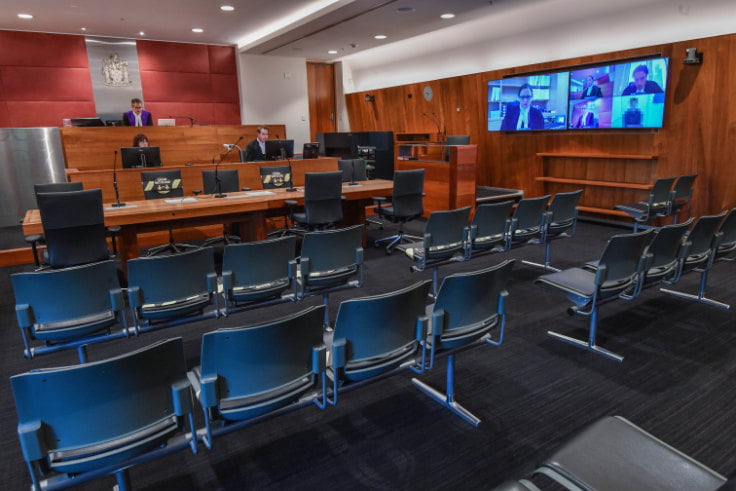Interview by Ong Chin Ngee, Lenon Ong and Elizaveta Shesterneva | Edited by Ong Chin Ngee
TechLaw.Fest 2020 (“TLF”) will take place online from 28 September to 2 October 2020, becoming the virtual focal point for leading thinkers, leaders and pioneers in law, business and technology. In the weeks leading up to TLF, the LawTech.Asia team will be bringing you regular interviews and shout-outs covering some of TLF’s most prominent speakers and the topics they will be speaking about.
This week, LawTech.Asia received the exclusive opportunity to interview Mark A. Cohen, Executive Chairman of the Digital Legal Exchange, CEO of Legal Mosaic, and the Singapore Academy of Law’s LIFTED “Catalyst-in-Residence.” Mark will be sharing the stage with Richard Susskind for a special session of their “Uncertain Decade” series. They will be discussing “The Future of the Legal World.”
Given how the legal industry has to pick up digital tools due to COVID-19, do you think that COVID-19 has effectively spurred legal innovation around the world? Also, could you name some examples of the digital tools being used in today’s world, especially by lawyers and law students?
At the outset, let me clarify that in my view, digital tools now apply not only to different technological applications and platforms but also to different ways of working and collaborating. The legal industry has a robust tool shed, but it is under-utilised.
Regarding the uptick of digital tools and legal innovation around the world, let me zoom in on law firms. It is important to note that law firms have thus far been primarily office-centric. However, due to COVID, they are now constrained to working remotely, which naturally means a broader and deeper use of and reliance on digital tools. This does not mean that innovation will naturally occur. This is a first step in the change process, but digital transformation starts with consumers. How can providers give them a consistently more accessible, impactful, efficient, and satisfying experience that drives measurable results? To do that requires law firms to do much more than to use technological tools. The law firm must reimagine its model, collaboration with others in the legal supply chain, its culture, and — especially — its culture. These are the elements that drive innovation. Again, it’s all about the consumer, not the provider.
You also asked about law students. Until COVID-19, digital tools were under-utilised in legal education. Much of legal education is learned outside the classroom. Education is a process, not a place. COVID-19 has highlighted that. Legal education must be more than learning legal doctrine. It is about applying legal training to help people/companies in distress. This requires a more holistic view of learning as well as a learning for life mindset. My late father used to say: if you are an astute observer, you can learn as much on the subway as in the classroom — both are important in advancing one’s education. Students must have cultural awareness and “people skills” to succeed. This is especially important as the world becomes increasingly tech-centric. Humanity counts — especially for lawyers and other legal professionals.
“Innovation” is an overused and misapplied term when applied to most things in the legal industry. Innovation positively impacts consumers and society. We need to focus on the customer, not the provider. That’s perhaps the biggest change going on in the legal industry.

Globally, should policymakers/governments and courts be more involved in the legal tech space to minimise the barriers to access to justice, and how can they do so? Do you have any examples?
Yes, they should. Courts are absolutely critical in breaking down barriers to access to justice through the adoption of legal tech. For example, in the United States, there is a huge backlog of cases and I believe some responsibility rests with the courts to recognise that they contribute to the efficiency of the justice system, too.
Just as providers of legal services must be more creative to make services/products more accessible, so too should courts begin to think and act this way. This would involve — among other things — utilising data, providing self-help dispute resolution tools, and expanding the justice system beyond courthouses. Justice — like education — is a process and not a place.
Governments also have a vital role to play in increasing access to justice via legal tech. Regulators should be outcome driven, and in this context, the purpose of regulation is a balance between protecting the public and ensuring that it has accessible, affordable legal services.
In your interview with us for TechLaw.Fest 2019, you mentioned that “limited access to justice is a global challenge that the legal industry can and must address”. Which player(s) do you think is/are the most suited to take the lead in the movement of an equal access to justice: the government, separate lawyers who specialise in immigration law, human rights law, etc., or should legal technology start-ups be more vocal about this issue? Also, what are the structural / cultural issues hindering greater access to justice, and how do you think legal technology can address such issues?
On the first question, I think all stakeholders in the legal industry should have the shared objective of delivering efficient services and fostering a culture that encourages creativity and new delivery models. This necessitates working collaboratively rather than in silos. Traditionally, lawyers tend to be indoctrinated with a zero-sum mindset: there is a winner and a loser. This is a fallacy. Law must seek to be less adversarial and more collaborative. Even in trial work — something I’m very familiar with — one can be adversarial while also being collaborative in effecting compromise. That’s why 99% of contested matters ultimately settle.
On structural issues hindering greater access to justice, we would have more public interest lawyers — especially in the United States — if legal education was not so expensive. My experience as a professor at several law schools has been that many students would like to work on expanding access to justice but cannot afford to do so because they must opt for higher-paying jobs to retire their student debt. That’s wrong.
On the last point in your question, legal tech can promote collaboration across geographical boundaries. Unlike the practice of law, which is constrained to specific jurisdictions, technology is not limited that way. For the most part, tools that can be effectively used in Asia can also be used in South/North America. The global legal industry has many common problems, and anything that encourages collaborative, cross-border/continent efforts to address them should be encouraged. Technology is one such tool in the collaborative arsenal.
Unlike the practice of law, which is constrained in specific jurisdictions, technology is not limited that way. … The global legal industry has many common problems, and anything that encourages collaborative, cross-border or continent efforts too address them should be encouraged.
Mark A. Cohen, Executive Chairman of Digital Legal Exchange, CEO and Founder of Legal Mosaic, LIFTED Catalyst-in-Residence
COVID-19 has opened a lot of old wounds related to the problems such as racial discrimination, the divide between the rich and the poor and others. In your view, will more lawyers who specialise in, say, fighting racial injustice from the legal point of view play an increasing role, and how can legal technology come into play here? Also, how do you think the culture in the legal industry will change given the increasing adoption of legal technology?
Lawyers are taught to avoid risk and not to make mistakes. They look to precedent — what’s been done in the past — and not to innovation and how things can be done differently. Legal culture is also male-oriented, and focused on input and not output These are some of many legal cultural elements that impede true innovation.
Legal consumers, especially since COVID-19, are demanding more of the legal function. They are driving legal industry change, not lawyers.
The younger generation of legal professionals will also drive change. They have been exposed to technology since birth and will, hopefully, use it to construct new delivery models: education, legal service delivery, the judicial process, that better serve legal consumers and society.
I have great hope that law can and will do better.
—
This piece of content was produced by LawTech.Asia as an official media partner for TechLaw.Fest 2020. Click on the banner below to access TechLaw.Fest, and register for the event (it’s free – for limited slots only)!

